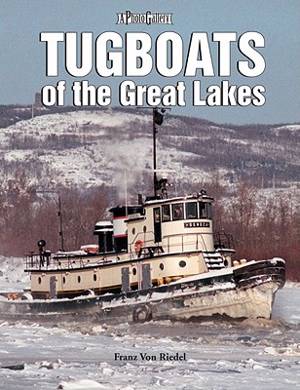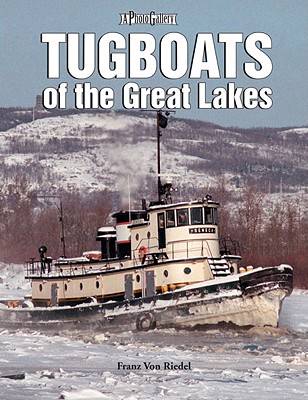
- Retrait gratuit dans votre magasin Club
- 7.000.000 titres dans notre catalogue
- Payer en toute sécurité
- Toujours un magasin près de chez vous
- Retrait gratuit dans votre magasin Club
- 7.000.0000 titres dans notre catalogue
- Payer en toute sécurité
- Toujours un magasin près de chez vous
60,95 €
+ 121 points
Description
From the early days of commercial navigation on the waterways of the Great Lakes, tugboats have been needed to guide the ships in and out of the newly constructed ports. As the means of transportation progressed from wooden schooners to large steel steamships, the tugboat also grew in size. This book takes an in-depth look into the ancient practices of Great Lakes ice-breaking, ship-assistance and towing. At the turn of the century, the towing industry changed forever with the consolidation of fleets and the design of the low-profile powerful steam ship-docking tug. This "G-Tug" design has become known all around the world and these same 80-year old tugs are still the primary workhorse in most harbors on the Lakes today. Many other designs, unique to the fresh waters of the Great Lakes are profiled in this book. The severe climate of the Great Lakes region is brutal on the equipment and the tugs are built tough, for heavy ice breaking. A new class of powerful Coast Guard ice-breaking tugs came out in the 1940s. Today, many of these "WYTM" class tugs survive in commercial service on the Lakes. The Lakes have always been home to a large fleet of U.S. Army Corps of Engineers tugs. Additionally, U.S. Army auctions have brought many government-class tugs such as LTs, STs, and DPCs to the Lakes in the hands of private and commercial operators. In the rivers that feed the busy port of Chicago and all throughout New York State on the Erie Canal, a rare species of tug can be found-the famous "canallers" which are also featured in this volume.
Spécifications
Parties prenantes
- Auteur(s) :
- Editeur:
Contenu
- Nombre de pages :
- 160
- Langue:
- Anglais
- Collection :
Caractéristiques
- EAN:
- 9781583881927
- Date de parution :
- 01-06-07
- Format:
- Livre broché
- Format numérique:
- Trade paperback (VS)
- Dimensions :
- 217 mm x 279 mm
- Poids :
- 657 g

Les avis
Nous publions uniquement les avis qui respectent les conditions requises. Consultez nos conditions pour les avis.






